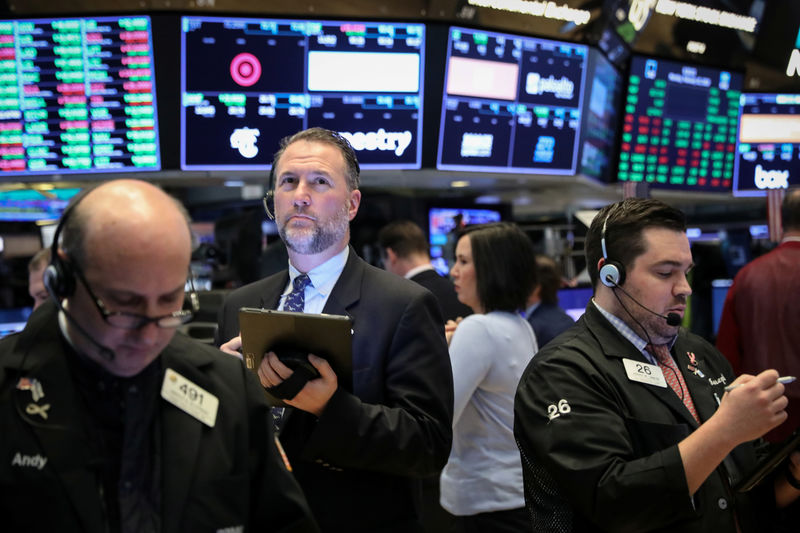This post was originally published on this site
https://i-invdn-com.akamaized.net/news/LYNXNPEF1P0WJ_M.jpg
Investing.com – Wall Street clawed back losses on Monday even as an uptick in Covid-19 infections threatened to slow the process of reopening the economy.
The Dow Jones Industrial Average was flat, after falling more than 300 points at the open. the S&P 500 gained 0.11%, while the Nasdaq Composite added 0.60%.
Reports of a jump in coronavirus cases across the U.S., China, and parts of Europe raised fears a second wave of the virus could be on the horizon that could potentially lead to fresh lockdowns.
Leaders in New York and Texas threatened to renew lockdowns.
New York Gov. Andrew Cuomo said on Sunday that he would reimpose shutdowns if businesses failed to comply with current restrictions and people didn’t socially distance, according to Bloomberg.
Still, some on Wall Street continue to downplay the prospect of lasting damage on corporate earnings.
“But, the combination of incremental data improvement and extraordinary policy support has been sufficient to assure the forward-looking market that the earnings damage resulting from the virus will ultimately be short-lived,” Goldman Sachs (NYSE:GS) said in a note.
Travel and tourism, sectors sensitive to the pace of reopenings, pared some of their losses and helped the broader market bounce from session lows.
American Airlines (NASDAQ:AAL) was down about 1%, Southwest Airlines (NYSE:LUV) was up 1%, while United Airlines (NASDAQ:UAL) slipped 3% after the airline detailed plans to sell up to 28 million shares.
Shopify (NYSE:SHOP) rose 5% after the e-commerce platform announced a new partnership with Walmart (NYSE:WMT) that will open the latter’s Marketplace to Shopify’s small business sellers.
Elsewhere, Moderna (NASDAQ:MRNA) gained more than 3% after on reports Israel was buying the company’s coronavirus vaccine.
Energy, meanwhile, also retracted losses as oil prices turned positive, shrugging off concerns about weakness in crude demand.


